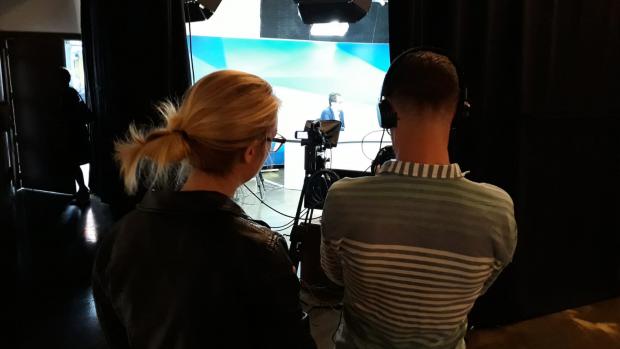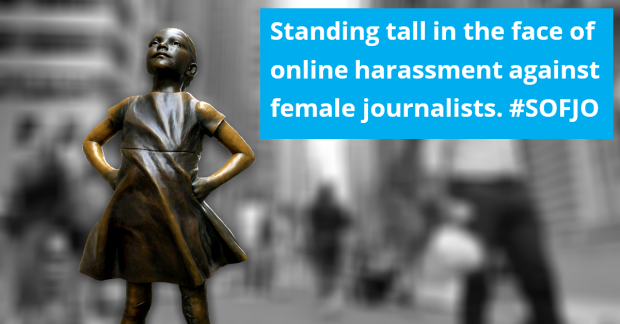#SOFJO: Why online attacks on female journalists are an affront to plurality, media freedom and democracy
It is a fact that journalism can be a very dangerous profession.
Investigative reporters are targeted for bringing to light unflattering information about those in power. War correspondents face constant physical danger when they are in the field. Yet research has shown that the feeling of uncertainty and the general threat emanating from online threats, intimidation and abuse has a particularly disruptive effect on victims’ lives and psychological well-being.
In recent years, the growing trend of online attacks has taken a dangerous turn and women journalists everywhere have become the targets of vicious online campaigns that seek to smear their reputations, flood their inboxes with threats of sexual violence and expose their families, all designed to silence dissenting voices.
Online threats can lead female journalists to leave the profession or stop them from coming into it at all. They can lead female journalists to self-censor - remove themselves from social media or stop writing about specific topics in order to avoid trauma - or stay quiet about their experience online for fear of repercussions on their career. This is having a devastating impact on the freedom of expression.
The online safety of women journalists is an issue that goes beyond gender equality. It directly impacts the quality of democracy and the fundamental human right of societies to access a plurality of information.
More than 70% of women working in the media have experienced more than one type of harassment, threat, or attack online. 52% of women have experienced these types of offence in the past year alone.
Source: International News Safety Institute; International Women’s Media Foundation
Therefore now, more than ever, this issue requires the attention of international organizations, governments and media companies.
To address the growing number of reports from across the OSCE region that women journalists and bloggers are being singled out and fiercely attacked online, the OSCE Representative on Freedom of the Media launched the Safety of Female Journalists Online (#SOFJO) project in 2015.
Together with the International Press Institute (IPI), the OSCE Representative has produced a full-length documentary, A Dark Place, to highlight the experiences of female journalists who have been affected by online harassment. The documentary, directed by Javier Luque, Head of Digital Communications for IPI, premiered in Vienna on 10 December, International Human Rights Day, as part of This Human World film festival.
 Filming journalist Banu Güven in Istanbul.
Filming journalist Banu Güven in Istanbul.They believe that these tweets and this online harassment, these threats will make us stop writing and speaking out the truth about everything. On the contrary: We are getting stronger every day!
Banu Güven Turkish Journalist
A Dark Place focuses on the stories of women journalists as well as experts on gender and media from a number of OSCE participating States - Finland, Serbia, Spain, the Russian Federation, Turkey, the UK and the USA. The documentary encourages global audiences to discuss and better understand the impact of online harassment on media pluralism and media freedom. Among the journalists interviewed are:
- Azerbaijani journalist Arzu Geybullayeva, who has been the target of a years-long online defamation campaign because of her work as an independent journalist covering Azerbaijan and publishing in an Armenian newspaper;
- Finnish journalist Linda Pelkonen, who won a landmark defamation case against an online news portal that initiated an online smear campaign, leading to dozens of threatening messages and phone calls targeting her;
- Banu Güven, one of Turkey’s leading women journalists, pushed out of the country’s mainstream media after years of online smear campaigns;
- Spanish journalist Pepa Bueno, host of a morning radio show with a regular audience of nearly four million listeners. She is a regular target of online harassment because of her in-depth and critical coverage of Spanish politics.

For further information about the SOFJO project and for resources for journalists who have been the target of online harassment, visit: www.osce.org/representative-on-freedom-of-media/safety-female-journalists-online




